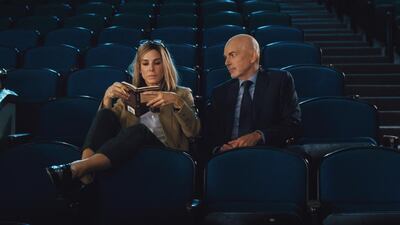Sandra Bullock, once best known as the doyenne of lightweight romantic comedies, has undergone a career rebranding.
In 2010 she won the Academy Award for Best Actress for her no-nonsense performance as an interior designer who nurtures a wayward child into becoming an American football star in The Blind Side.
Then came her outer-space exploits as an astronaut battling for survival in Gravity, which won director Alfonso Cuaron the Academy Award for Best Director in 2014.
Now, in the political satire, Our Brand Is Crisis, we get to see Bullock in yet another surprising guise.
She stars as Jane Bodine, a political consultant who is in self-imposed exile after suffering bouts of addiction and mental illness after a series of election defeats earned her the nickname Calamity Jane.
But when she gets a call from Bolivia offering her a chance to once again battle an old foe, she cannot resist her biggest addiction – winning at all costs.
“It’s a story about what people can do when they don’t have a conscience,” says Bullock.
And these are real people – or at least, fictionalised versions of real people. The film was inspired by a 2005 documentary of the same name, directed by Rachel Boynton, which exposed the American political-campaign marketing tactics employed during the 2002 Bolivian election.
Bullock was only vaguely aware of the real-life story and the documentary when she read the screenplay, which she admits employs a fair amount of dramatic licence and does not claim to be a straight retelling.
“Once I got the script, then the documentary became a reminder of what we want to capture,” she says. “There are dramatic differences.”
The fictional narrative pits Bodine against rival spin doctor Pat Candy, played by Billy Bob Thornton.
“It’s a political backdrop,” says Bullock, “but it’s about the complexities of human nature in this powerful, manipulative world”.
About his character, Thornton says: “He’s a guy who enjoys being God-like, or Devil-like. He likes to be in control – these people are control freaks.”
An intriguing behind-the-scenes story about the film is that the part Bullock plays was originally written for a male actor. Bullock's Gravity co-star George Clooney bought the rights to the documentary and it was assumed that he had intended to appear in the movie version – but he was happy to stand aside when one of the biggest female stars on the planet asked to play the role, and the script was rewritten to accommodate her.
It says much about gender bias in Hollywood – which has increasingly been challenged in recent times by stars such as Patricia Arquette, Jennifer Lawrence and Emma Watson – when Bullock has to read roles written for men because she cannot find a script with a strong female lead.
According to Bullock, in this case the gender swap from a strong male to a female character was not difficult. “All we had to do is change the name,” she says.
What’s remarkable when watching the film is how hard it is to battle against deeply ingrained Hollywood gender stereotypes and clichés – because the story is about a woman and a man who start out as enemies, and there is an implied assumption that a romantic attraction will eventually develop.
Although based on a serious subject matter, this is still a Sandra Bullock film, and the dramatic side is balanced with black humour.
"This is a comedy, even though it deals with the serious world of politics," says Zoe Kazan (the writer and star of Ruby Sparks), who co-stars as a Zen-like political-research ally of Bodine.
“Especially as acted by Sandra Bullock – she always finds a way of getting comedy into dramatic situations, and I think it’s a very unusual movie because of that.”
The film was directed by David Gordon Green – who made a huge splash in 2001 with his debut film George Washington – a drama about a group of children who band together to cover up a tragic accident. However, he is now best known for making slacker comedies such as Pineapple Express, Your Highness and The Sitter.
Green spent time in Bolivia before production began, where he was impressed by the level of political activism and engagement in the Latin American country.
“The beauty is that there is a constant political energy and it’s not just like, ‘Who said the most crazy thing on television’, or, ‘Who is the biggest idiot’,” he says. “It’s like, ‘Here is what I think and here is what this group of like-minded people think and let’s go make something happen that expresses that’.”
As for making a political satire, he says, “The idea is that you make a really entertaining movie that asks a lot of questions”.
• Our Brand Is Crisis is in cinemas now
artslife@thenational.ae


